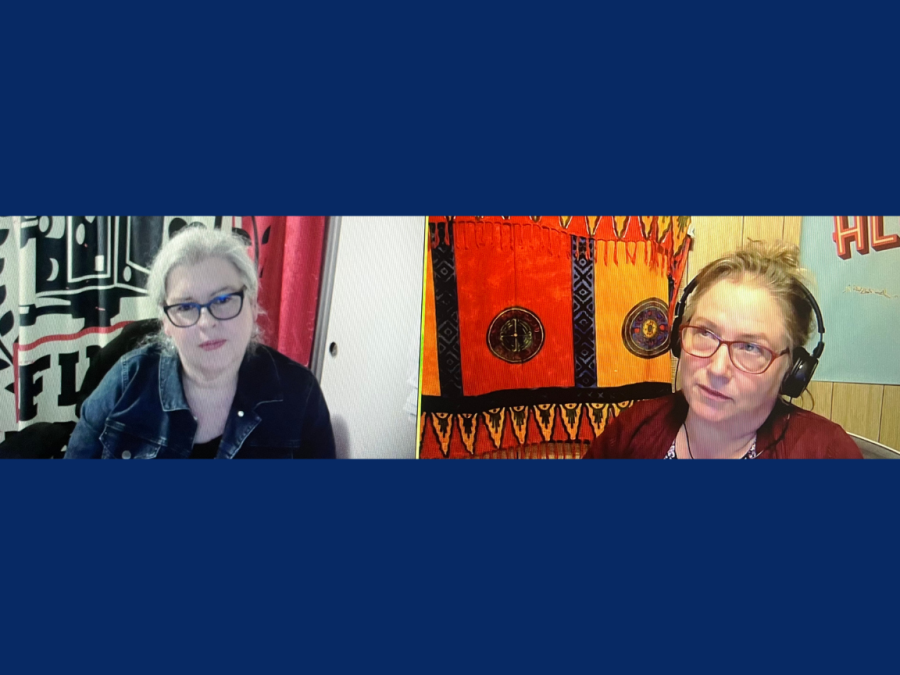PBS airs alumna’s documentary
Professor Lauren Wagner (Left) and Director Colleen Stymeist-Wood (Right) during the Q&A session on April 12. The documentary titled “Joe 238” aired on PBS KVIE and is available for viewing through the PBS app.
A former radio, television and film student made a documentary titled “Joe 238” that aired on PBS KVIE on April 12.
Ten years ago, Colleen Stymeist-Wood turned in her project for her intermediate filmmaking class. It was a documentary that followed the family and fiancé of deceased Sacramento police officer Joe Chairez, who donated his organs after his death.
“What really made me want to tell the story was hearing his dad share the story of his son at a volunteer speakers training for organ donor families and recipients,” Stymeist-Wood said. “It just kind of always stuck with me that presentation from the other side.”
Stymeist-Wood discussed the making of the film in a Q&A session that was held via Zoom by RTVF Professor Lauren Wagner after the film aired.
Stymeist-Wood said she has a personal connection with organ donation due to her daughter needing a heart transplant, which she was able to get from a young boy.
“We didn’t know these people and they saved our daughter’s life,” Stymeist-Wood said.
Stymeist-Wood had Wagner as her RTVF professor when she was enrolled at Cosumnes River College.
Wagner said she had her students pitch film ideas and Stymeist-Wood was so interested by the idea of making the film, she drove to Stockton to speak to Wagner about it in person.
“She drove down, told me about how she wanted to do this and I’m like, ‘well you need to do it, write it up,’” Wagner said. “The day she was going to pitch it in the 350 class, she kind of pulled me aside and was like, ‘this group, they might not be into this.’”
Wagner said she pushed Stymeist-Wood to pitch the idea and there were indeed people in the class interested. Infact, 17 of Wagner’s former students were in the credits of the final version of the documentary.
The version of the film that was pitched in the class was about half as long as the nearly one-hour version that PBS aired.
“In the version that was done here, you kind of met Joe more because that was the main part of the film,” Wagner said. “He’s not here anymore, this is the decision that his family was faced with and what they did and then that was kind of it because we only had the one semester.”
Stymeist-Wood continued working on the documentary after she left CRC. She said she would get doubts at times due to conflicts such as a lack of money, but would focus on the reason she started the film.
“I wanted to do something to honor the family, so I had all the motivation in my heart the whole time,” Stymeist-Wood said.
Stymeist-Wood ended the Q&A session with a final thought.
“I just want to reiterate the don’t give up part,” Stymeist-Wood said.
“Joe 238” is available for viewing through PBS.

